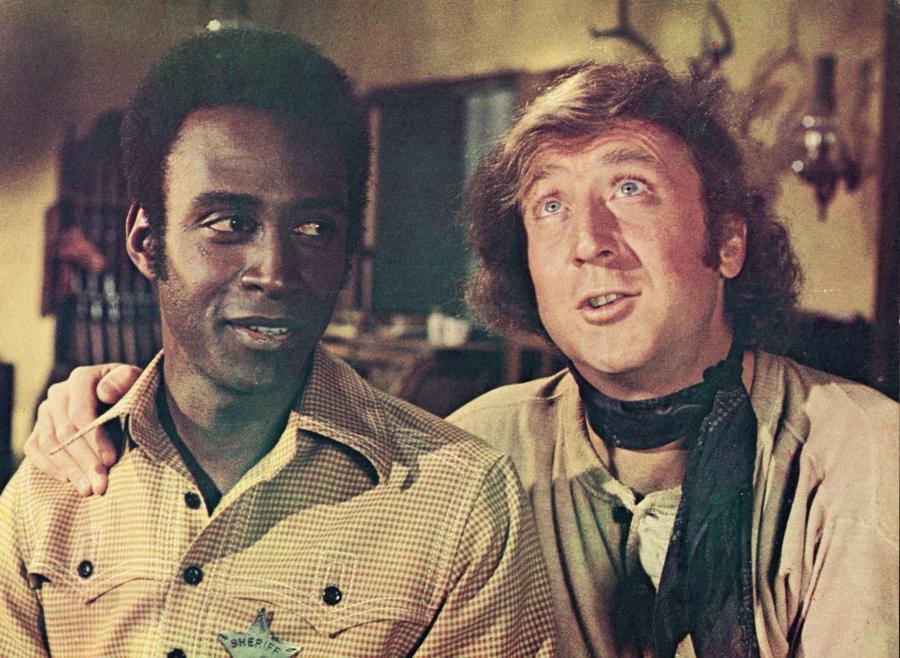What Was Cleavon Little's Net Worth?
Cleavon Little was an American stage, film, and television actor who had a net worth of $2 million at the time of his death in 1992. Cleavon Little began his career onstage in the late 1960s. He went on to star in the Broadway production of "Purlie" in 1970 and won both a Tony Desk and a Drama Desk Award. He also appeared on the sitcom "Temperature Rising" and in the film "Blazing Saddles," among many other productions. Little passed away in 1992 and was posthumously honored with a star on the Hollywood Walk of Fame in 1994.
Early Life
Cleavon Little was born on June 1, 1939, in Chickasha, Oklahoma. He was raised in San Diego, California, with two brothers and two sisters, including singer DeEtta Little West, who performed vocals on the song "Gonna Fly Now," the main theme to "Rocky." Little attended Kearny High School and graduated in 1957. He then enrolled at San Diego State College and earned a degree in speech therapy in 1965. By that time, he had already begun acting as he appeared in "A Raisin in the Sun" in 1962 at the Old Globe Theatre in San Diego. During college, Cleavon worked as a janitor in order to earn enough money to support himself. He also gave poetry readings and presentations about Black poetry to various clubs and groups on campus. He then won a scholarship from the American Broadcasting Company to attend the American Academy of Dramatic Arts in New York City. He was named the best actor in the class of 1967.

(Photo by Warner Bros./Courtesy of Getty Images)
Career
Little made his professional debut in February 1967, appearing off-Broadway at the Village Gate in the original production of Barbara Garson's MacBird. This was followed by the role of Foxtrot in the original production of Bruce Jay Friedman's long-running play "Scuba Duba" which premiered in October 1967. At the time, Cleavon was also portraying Hamlet during the days at schools and parks on behalf of the New York Shakespeare Festival.
In 1968, Little made his first film appearance in a small uncredited role in "What's So Bad About Feeling Good?" He also made his first television appearance as a guest star on two episodes of "Felony Squad." He then had roles in the films "John and Mary" and "Cotton Comes to Harlem" in 1969 and 1970, respectively.
In 1969, Cleavon made his Broadway debut as Lee Haines in the musical "Jimmy Shine." In 1970, he returned to Broadway to portray the title role in Ossie Davis's musical "Purlie," for which he won the Tony Award for Best Actor in a Musical and the Drama Desk Award for Outstanding Actor in a Musical.
In 1971, Little was hired as an ensemble player on the syndicated television variety show "The David Frost Revue." He also portrayed Shogo in "Narrow Road to the Deep North" on Broadway. The same year, Cleavon was chosen to portray the blind radio personality Super Soul in the car chase movie "Vanishing Point." He also appeared in the pilot for "The Waltons" and was in an episode of "All in the Family."
Little then landed a starring role in the ABC sitcom "Temperature Rising," which aired in three different iterations from 1972 to 1974. He portrayed Dr. Jerry Noland on the show. In 1974, Cleavon starred in the disaster film "The Day the Earth Moved." He also made a minor appearance in the "Six Million Dollar Man."
Little also landed one of his most memorable roles in 1974 when he was cast as Sheriff Bart in Mel Brooks's comedy western "Blazing Saddles." Richard Pryor was originally meant to play the role after having co-written the script. However, studio executives were concerned about Pryor's reliability and selected Little as the safer choice. His role in the film earned him a nomination for the BAFTA Award for Most Promising Newcomer to Leading Film Roles, an award that was discontinued after 1984.
In 1975, Little returned to Broadway to play Lewis in the original production of "All Over Town." The next year, he appeared as Willy Stepp in the original production of "The Poison Tree." Throughout the rest of the 1970s, Cleavon appeared in films like "Greased Lightning," "FM," and "Scavenger Hunt."

Getty
In the 1980s, Little continued appearing in films like "The Salamander," "High Risk," "Jimmy the Kid," Surf II," "Toy Soldiers," "Once Bitten," "The Gig," and "Fletch Lives." He also returned to the New York stage in 1981 in the off-Broadway production "The Resurrection of Lady Lester." In 1985, Cleavon opened at Broadway's Booth Theatre in the play "I'm Not Rappaport." In 1989, he appeared as a closeted gay man in an episode of the sitcom "Dear John." For his role, he won the Primetime Emmy Award for Outstanding Guest Actor in a Comedy Series.
In 1991, Little appeared on the Fox sitcom "True Colors." The same year, he also had a supporting role on the television series "Bagdad Café" and appeared in 12 episodes. He was also cast in the docudrama "Separate but Equal," in which he portrayed a civil rights attorney. Additionally, he appeared in the television series "MacGyver." Cleavon's last appearance as an actor was in a guest role on a 1992 episode of the series "Tales from the Crypt."
Personal Life and Death
In 1972, Little married Valerie Wiggins. They divorced in 1974. Cleavon had a daughter named Adia Millett. In 1992, Little died of colon cancer at his home in the Sherman Oaks area of Los Angeles. For his contribution to motion pictures, Little was posthumously honored with a star on the Hollywood Walk of Fame in February 1994. A scholarship in his name, the Cleavon Little Scholarship, was created by the American Academy of Dramatic Arts and provides assistance to minority students.
/2019/10/Cleavon-Little-1.jpg)
/2024/12/Madeline-Kahn.jpg)
/2014/08/robert-klein.png)
/2020/09/jesse.jpg)
/2013/10/Bernadette-Peters-1.jpg)
/2020/03/Gene-Wilder.jpg)
/2018/04/Simon-Neil.jpg)
/2011/05/scotty.jpg)
/2013/02/Bella-Thorne.jpg)
/2020/02/lo.jpg)
/2018/07/pat2.jpg)
/2022/08/ruth-buzzi.png)
/2011/04/Travis-Tritt.jpg)
/2009/11/Jack-Black.jpg)
/2011/09/mike.jpg)
/2011/01/Ernest-Borgnine.jpg)
/2011/06/Phyllis-Diller-e1486738046954.jpg)
/2019/10/Cleavon-Little-1.jpg)
/2020/03/Gene-Wilder.jpg)
/2023/02/conchata.jpg)
/2020/09/jesse.jpg)
/2013/05/Debbie-Allen.jpg)
/2014/12/jf.jpg)
/2022/01/audra.jpg)
/2011/02/GettyImages-452535082.jpg)